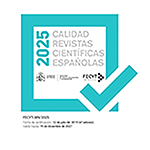"Novitas vitae". Vida mesiánica, vida común y vida profanada. Algunas versiones de la “vida” más allá de la “vida desnuda”
Resumen
El presente artículo ofrece una lectura de la compleja y polémica interpretación agambeniana del mesianismo, con el objetivo de sacar a la luz el concepto de “vida” que en ella se esboza. Se reconstruye, en primer lugar, la argumentación en torno al problema de la ley en el mesianismo judío que Agamben desarrolla en la conferencia sobre Benjamin “Il messia e il sovrano” (1992). Se presenta, luego, una lectura de Il tempo che resta (2000) en la que se intenta poner en evidencia las tensiones entre la interpretación taubesiana del mesianismo paulino y la interpretación heideggeriana de la “vida fáctica” de las primeras comunidades del cristianismo. Y se analiza, finalmente, la idea de profanación que, como contracara de la sacralización de la vida, se ofrece como posibilidad de suspender la vocación genética no sólo del viviente “hombre” sino también del viviente en general.Descargas
Descarga artículo
Licencia
La revista Res Publica. Revista de Historia de las Ideas Políticas, para fomentar el intercambio global del conocimiento, facilita el acceso sin restricciones a sus contenidos desde el momento de su publicación en la presente edición electrónica, y por eso es una revista de acceso abierto. Los originales publicados en esta revista son propiedad de la Universidad Complutense de Madrid y es obligatorio citar su procedencia en cualquier reproducción total o parcial. Todos los contenidos se distribuyen bajo una licencia de uso y distribución Creative Commons Reconocimiento 4.0 (CC BY 4.0). Esta circunstancia ha de hacerse constar expresamente de esta forma cuando sea necesario. Puede consultar la versión informativa y el texto legal de la licencia.









